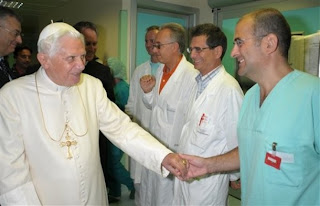 WASHINGTON - Catholic and the other church-owned health systems demonstrate greater quality and the efficiency than not-for-profit or investor-owned systems, according to a new analysis by the Thomson Reuters.
WASHINGTON - Catholic and the other church-owned health systems demonstrate greater quality and the efficiency than not-for-profit or investor-owned systems, according to a new analysis by the Thomson Reuters.The analysis released Aug. 9 divided 255 U.S. health systems into four ownership categories and then compared them according to the eight performance measures, including the mortality rates, complications, patient safety, readmission rates and average length of the stay.
"Catholic and the other church-owned systems are significantly more likely to provide higher the quality performance and efficiency to the communities served than investor-owned systems," said a report prepared by David Foster of Thomson Reuters' Center for the Healthcare Improvement in Ann Arbor, Mich.
"Catholic health systems are also significantly more likely to provide higher quality performance to the communities served than secular not-for-profit systems," it added. "Investor-owned systems have significantly lower performance than all the other groups."
Sister Carol Keehan, a Daughter of the Charity who is president and the CEO of the Catholic Health Association, said that in the Catholic hospitals, "quality is a primary commitment flowing from the mission."
"Everyone from the sponsors, boards, clinicians and the support staff takes it very seriously," she told Catholic News Service Aug. 9. "We are pleased to see this independent confirmation of the success of our efforts."
Foster's report said the responsibility for the quality of care is delegated to local hospital governing boards in most health systems.
"Our data suggest that the leadership teams (board, executives, and physician and nursing leaders) of health systems owned by the churches may be the most active in aligning quality goals and monitoring the achievement across the system," he said. "Investor-owned health system boards and/or executive leadership may be adopting a responsibility for quality more slowly."
The report said further study is needed "to definitely determine why these differences exist and what effect they will have on the systems' future health."
The data analyzed in the report was drawn from an earlier study by Thomson Reuters that named the nation's 100 top hospitals, based on a variety of the performance benchmarks.

No comments:
Post a Comment